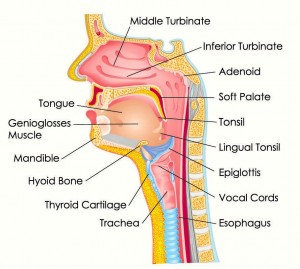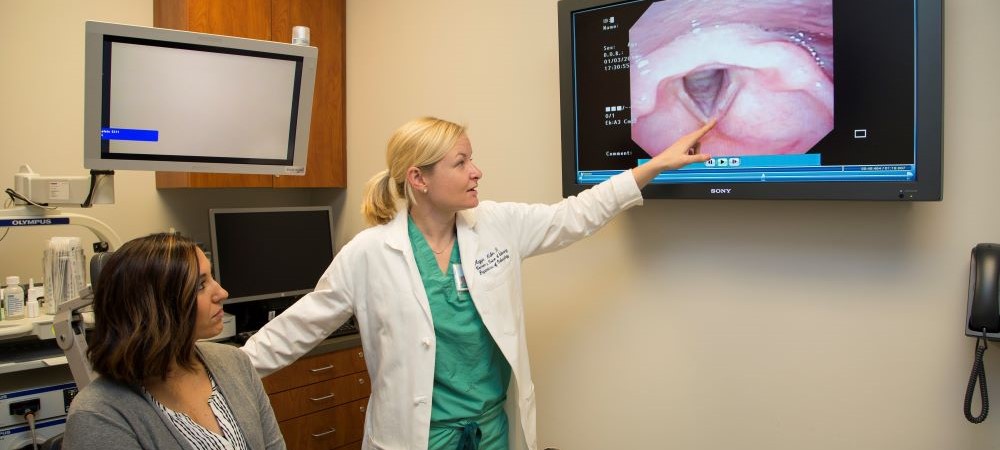Protecting Your Voice: How a Voice Specialist Can Treat Disorders
Protecting Your Voice: How a Voice Specialist Can Treat Disorders
Blog Article
Checking out the Field of Otolaryngology: What to Expect When You Speak With an ENT
Otolaryngology, generally described as ENT, includes the medical diagnosis and therapy of throat, ear, and nose problems. ENT surgery. For those experiencing relevant concerns, speaking with an ENT professional can offer quality and alleviation. Comprehending what to expect throughout such appointments is vital for efficient interaction and care. This introduction will certainly describe vital elements of the ENT experience, including common reasons for check outs and the processes associated with medical diagnosis and treatment
Recognizing Otolaryngology: A Summary
Otolaryngology, usually referred to as ENT (Nose, ear, and throat) medicine, is a specialized branch of medicine that concentrates on the medical diagnosis and treatment of conditions impacting these critical areas of the human body. This area incorporates a large variety of problems, consisting of those associated to hearing, equilibrium, respiratory function, and speech. Otolaryngologists are educated to take care of both medical and clinical treatments, using advanced strategies and technologies. Their experience expands beyond standard conditions, resolving issues such as allergies, sinus infections, and hearing loss. Additionally, they play a vital function in the monitoring of head and neck cancers cells, offering extensive treatment tailored to individual client needs. In general, otolaryngology continues to be essential for keeping health and lifestyle in affected people.
Usual Reasons to See an ENT Professional
Several people seek the knowledge of an ENT expert for a range of factors, mirroring the varied nature of problems that affect the nose, throat, and ear. Usual concerns include persistent sinus problems, which frequently causes relentless nasal blockage and facial discomfort. Allergic reactions and their associated signs, such as sneezing and itching, likewise prompt brows through to these specialists. Hearing loss, whether abrupt or steady, is another substantial factor for consultation. In addition, people may look for assessment for throat conditions, consisting of relentless hoarseness or swallowing problems. Sleep apnea, defined by cut off breathing during sleep, is frequently resolved by ENT professionals. Each of these conditions highlights the relevance of specialized treatment in taking care of intricate ENT-related health issues.
Preparing for Your ENT Visit
When planning for an ENT visit, it is vital to collect pertinent details and consider any kind of particular worries. Individuals ought to compile a comprehensive case history, consisting of previous ear, nose, or throat problems, surgical procedures, and current medicines. Documenting signs and symptoms-- such as frequency, period, and extent-- can give valuable understandings for the ENT expert. In addition, individuals need to prepare a checklist of concerns they want to ask, ensuring that all concerns are resolved during the visit. Bringing along any type of pertinent clinical documents or test results can better assist the ENT in understanding the client's problem. Ultimately, individuals should verify their appointment details, consisting of location, day, and time, to decrease any kind of final confusion. Correct prep work can improve the efficiency of the consultation and bring about far better end results.

What to Expect Throughout the Assessment
As the consultation begins, the client can expect to take part in a thorough discussion with the ENT expert about their symptoms and case history. The expert will certainly inquire regarding the duration, regularity, and intensity of signs and symptoms such as hearing loss, nasal congestion, or aching throat. Additionally, the client's previous medical conditions, medications, and any type of pertinent household history will certainly be assessed, assisting the professional in forming a full understanding of the patient's health. The ENT may likewise inquire about lifestyle aspects, such as direct exposure to irritants or irritants. This open dialogue establishes a foundation for the appointment, ensuring that the patient's concerns are attended to and establishing the stage for any kind of required assessments or suggestions for therapy.
Diagnostic Examinations and Procedures in Otolaryngology
A range of diagnostic examinations and procedures are crucial in otolaryngology to properly evaluate and detect problems Otorrinolaringologia affecting the nose, throat, and ear. Common examinations include audiometry, which determines hearing feature, and tympanometry, evaluating center ear stress. Nasal endoscopy enables visualization of the nasal flows and sinuses, while laryngoscopy checks out the throat and singing cables. Imaging strategies, such as CT scans and MRIs, offer thorough sights of head and neck frameworks. Allergic reaction testing may additionally be performed to identify triggers for sinus or respiratory issues. These analysis devices allow ENT professionals to create a complete understanding of patients' problems, ensuring tailored and effective administration plans. Appropriate diagnosis is essential for effective treatment results in otolaryngology.
Treatment Alternatives Provided by ENT Specialists
ENT professionals use a range of treatment choices tailored to address particular conditions affecting the throat, ear, and nose. These therapies range from conservative techniques, such as medication and way of living alterations, to more invasive treatments. For example, allergic reactions might be handled with antihistamines or immunotherapy, while persistent sinus problems could require nasal corticosteroids or sinus surgical procedure. For hearing loss, ENT professionals usually advise listening devices or surgical interventions like cochlear implants. In instances of throat conditions, choices can consist of speech therapy or operations to remove obstructions. Additionally, they might give support for managing sleep apnea, consisting of making use of CPAP tools or medical treatments. Overall, the objective is to improve people' lifestyle through individualized treatment and effective therapy approaches.
When to Look For Follow-Up Treatment With an ENT
When to look for follow-up care with an ENT expert is essential for handling continuous symptoms or difficulties connected to throat, ear, and nose problems, recognizing. Patients ought to think about setting up a follow-up visit if symptoms linger regardless of initial treatment, such as chronic ear pain, nasal congestion, or throat pain. Modifications in hearing, balance concerns, or unusual nasal discharge may also warrant additional analysis. Furthermore, if a client experiences adverse effects from prescribed drugs or has undergone an operation, follow-up care is essential to monitor recovery and address any type of issues. Prompt assessments can guarantee reliable monitoring of problems, protect against potential complications, and offer tranquility of mind relating to one's health. Seeking follow-up treatment promotes aggressive wellness management in otolaryngology
Often Asked Questions
What Certifications Should I Search for in an ENT Expert?
When looking for an ENT professional, one need to seek board qualification, relevant experience, and solid individual reviews. Additionally, effective communication abilities and a caring strategy can considerably enhance the total therapy experience.
Exactly how Do I Choose the Right ENT for My Needs?
Selecting the ideal ENT expert entails evaluating their qualifications, experience, and client evaluations. It is crucial to contemplate their interaction style and method to treatment, guaranteeing they align with the individual's specific health needs and preferences.
Are There Any Kind Of Threats Connected With ENT Procedures?
The dangers associated with ENT treatments might include infection, blood loss, anesthetic complications, and possible damage to surrounding structures. Individuals should go over these dangers with their medical professional to understand specific issues and assurance notified choices.
How Can I Handle Anxiousness Prior To My ENT Consultation?
To handle anxiousness prior to a consultation, people can exercise deep breathing workouts, imagine positive results, prepare inquiries beforehand, and seek support from pals or family, cultivating a feeling of confidence and peace.

What Should I Do if I Experience Side Effects From Treatment?
If side impacts from treatment occur, the person needs to promptly report them to their medical care service provider. ENT Doctor. Modifications to therapy or additional interventions might be needed to guarantee safety and security and performance in handling their problem. As the assessment starts, the person can expect to involve in an extensive conversation with the ENT specialist concerning their signs and symptoms and clinical history. These analysis tools enable ENT professionals to develop a thorough understanding of patients' conditions, ensuring tailored and efficient management plans. ENT professionals offer a variety of therapy alternatives tailored to attend to particular conditions impacting the throat, ear, and nose. When seeking an ENT professional, one must look for board certification, pertinent experience, and strong individual reviews. Choosing the ideal ENT specialist includes reviewing their credentials, experience, and individual reviews
Report this page